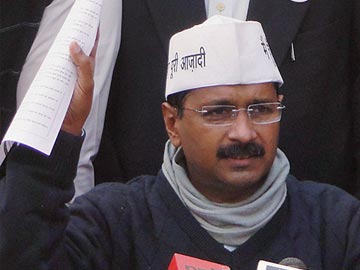 New Delhi, Jan 31: Delhi Chief Minister Arvind Kejriwal Friday said he has prepared a list of corrupt people.
New Delhi, Jan 31: Delhi Chief Minister Arvind Kejriwal Friday said he has prepared a list of corrupt people.
Addressing the Aam Aadmi Party's (AAP) national executive committee meet here, Kejriwal said: "I have made a list of corrupt people. This is just the beginning and the list will grow. I am presenting the list in front of you, and you decide whether these people should be voted or not."
As Kejriwal named the politicians one after the other, those who were present loudly said: "No".
"You people take the list forward, draft it and submit it," Kejriwal told the members.
The meet was attended by close to 400 AAP members from across India.
The chief minister criticised the BJP and the Congress for failing to carry out their duties, despite being in power.
"Electricity charges have increased in the last five years. The people wanted a CAG audit. But the parties refused to get an audit done. We ordered an audit within five days (of forming the government)," Kejriwal said.
He added that the AAP government did something within five days, which the other governments were unable to do for five long years.
The activist-turned-politician said: "They (the BJP and the Congress) were in power, yet they just kept demanding (a probe in the 1984 anti-Sikh riots). We came to power, and I met the Lt. Governor some days back to demand a probe."
He added that the SIT proposal will be passed in the next cabinet meeting scheduled to be held next week.
On the upcoming Lok Sabha elections, Kejriwal said that it does not matter how many constituencies from where it was fighting since it's main goal is to fight corruption.
"Our aim should be to ensure that not a single corrupt person is in the parliament. Also, that no family should have a hold on it," Kejriwal added.
"We challenge that the upcoming elections won't be a regular one. It will definitely bring about a change," Kejriwal added amid thunderous applause.





Comments
Add new comment